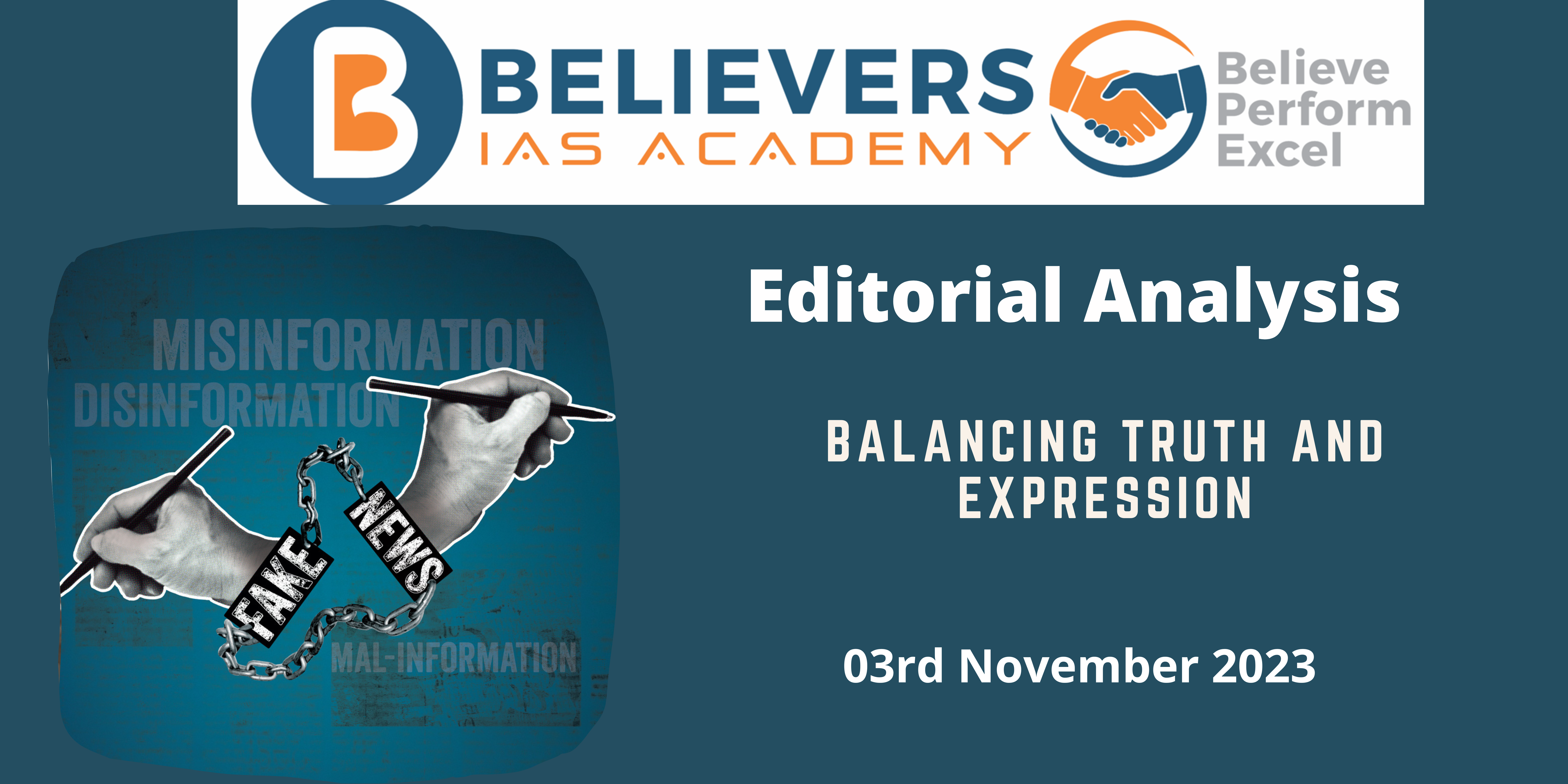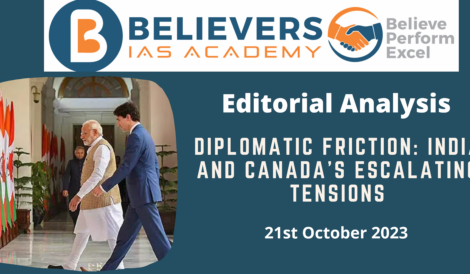Balancing Truth and Expression
Context:
The proliferation of misinformation and disinformation has been a significant challenge in today’s open communication system, especially within social media. The absence of effective filters often results in the uncontrolled dissemination of news and opinions based on false information, either deliberately or unintentionally circulated. In response to this issue, the Tamil Nadu government’s initiative to establish a fact-checking unit to address “misinformation and disinformation related to the State government” across various media platforms seems reactive. This decision mirrors a similar step taken by the Karnataka government. However, the concern arises from governments or their designated units assuming the role of arbiters of truth, which could potentially lead to biased judgment.
Relevance:
GS – 2 (Government Policies & Interventions, Fundamental Rights)
Prelims:
Supreme Court, Fundamental Rights, Supreme Court on Freedom of Speech of Ministers
Mains:
Important Judgements, Freedom of Speech of Ministers
Dimensions of the Article:
- Concerns Regarding Government-Led Fact-Checking Units
- Need for Clarification and Independent Oversight
Concerns Regarding Government-Led Fact-Checking Units:
- The Tamil Nadu government’s decision to establish a fact-checking unit, similar to initiatives in other states and the Centre’s implementation of IT Rules, raises apprehensions about the undue control of truth by government bodies. Such endeavors, while aimed at combating false news, may pose a threat to the fundamental right of freedom of speech and expression enshrined in Article 19(1)(a) of the Constitution.
- The recent case challenged in court underscores the potential conflict between the laudable motive of curbing misinformation and its infringement on constitutional rights.
Need for Clarification and Independent Oversight:
- Stakeholders, including the Editors Guild of India, have expressed concerns regarding the ambiguity of the fact-checking unit’s scope and authority.
- Suggestions have been made for independent bodies to handle misinformation issues, emphasizing the necessity of adhering to principles of natural justice, encompassing aspects like prior notification, the right to appeal, and judicial oversight.
- The absence of active involvement of journalists and key stakeholders in the establishment of these units in Tamil Nadu raises questions about their independence and fairness.
Way Forward:
- To address the challenges posed by misinformation and disinformation, it’s imperative for governments to consider an approach that upholds the right to free speech while combating false information.
- The establishment of fact-checking units needs to incorporate the principles of transparency, independence, and oversight involving diverse stakeholders, including journalists and independent bodies.
- Governments should reconsider the role and functioning of such units to ensure they operate in accordance with constitutional provisions and do not compromise the essential freedom of expression.
- The focus should be on fostering a collaborative and inclusive approach in tackling misinformation, allowing for fair critique and maintaining the integrity of democratic values.




